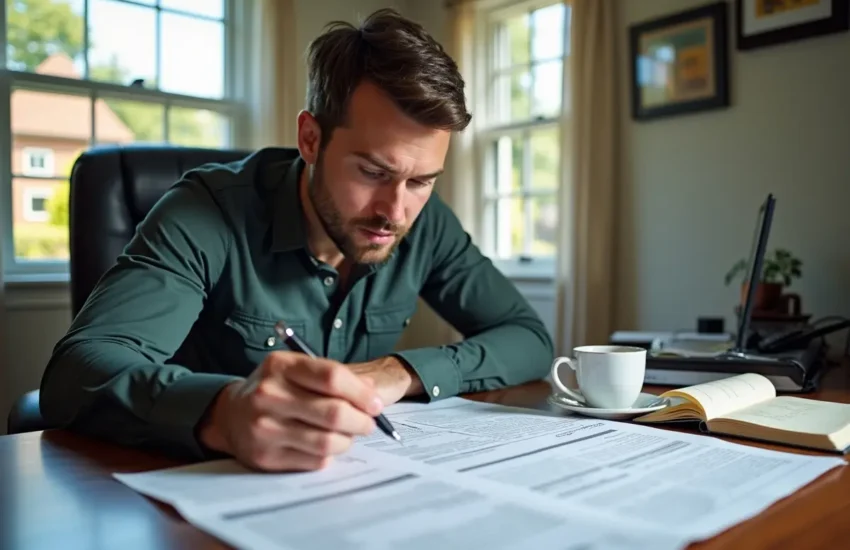8 Useful Tips for Responsible and Sustainable Energy Management
As we journey into the future, sustainable energy management becomes increasingly vital to preserving our planet and ensuring a better quality of life for everyone. It’s less about grand gestures and more about the simple yet effective daily habits that can make a significant difference.
Here we will delve into 8 indispensable tips on responsible and sustainable energy management. It’s time to equip ourselves with the knowledge and tools necessary to make more informed decisions about our energy consumption habits.
Remember, each small step we take towards smarter energy usage is a leap toward a sustainable and energy-efficient future.

1. Switch to Energy-Efficient Appliances and Plans
Look for Energy Star-certified devices, which are designed to conserve energy without compromising performance. Similarly, when selecting utility provider plans and rates, compare offers to find the best suited for your home’s needs. This type of methodical approach can lead to substantial savings in the long run.
Moreover, for informed choices about electricity plans, use energy rate calculators to estimate the total cost of electricity consumption for an entire year. Most importantly, always remember to turn off appliances and devices when not in use. In the case of unused electronics, unplug them completely to avoid residual energy leakages.
2. Regular Maintenance of Appliances
Ensure your appliances are working efficiently. Regular maintenance can prevent energy wastage due to malfunction or reduced performance. Check for air leaks or general wear and tear, as these can reduce the efficiency of your appliances and increase energy consumption.
Over the years, dust particles can accumulate and clog the filters of devices such as air conditioners, causing them to consume more energy. If you are unsure about maintenance tasks for particular appliances, hire a professional technician to help you.
3. Smart Lighting
Replace traditional bulbs with LEDs or CFLs, which consume less power and last longer. Also, make use of natural light whenever possible. That’s why it is important to choose window coverings that allow natural light into your home while still providing privacy.
Additionally, use motion sensors and dimmers for lights in areas where light isn’t needed all the time. This way you can control the level of brightness according to usage requirements and conserve energy in the process.
4. Insulate Your Home
Proper insulation of your home can significantly reduce heating and cooling expenses, thereby saving energy. Pay special attention to the attic and basement, as insulation there can help reduce heat transfer. This holds true for windows and doors too – use weather stripping or caulk to block any air leaks. Finally, consider investing in energy-efficient windows for improved insulation. A while ago, these windows were quite expensive, but today they come at more affordable prices.
5. Energy-Efficient Transport
Opt for public transport, carpooling, biking, or even walking whenever possible. It helps in reducing carbon emissions. If buying a new vehicle, look for hybrid cars and electric vehicles with the highest fuel economy ratings.
Use cruise control when driving on highways as it increases fuel efficiency, and remember to keep tires inflated at recommended levels for improved mileage. For instance, a tire inflated to 25 psi will offer better fuel efficiency than one at 20 psi. Conversely, when parking your car, switch off the engine as it consumes fuel even when idle.
6. Use Renewable Energy Sources
If feasible, switch to renewable energy sources like solar or wind. They are more sustainable and less harmful to the environment. On a smaller scale, use sunlight to heat water in solar geysers or consider installing solar panels for power generation.
Renewable energy sources cost more in the short run, but once set up, they provide free energy and reduce electricity bills over time. Moreover, these sources are much more reliable for future generations, as they don’t rely on non-renewable resources.
7. Water Conservation
Use water-efficient fixtures and appliances. Also, fix leaks promptly as they can waste substantial amounts of water and energy. Furthermore, consider purchasing rainwater storage tanks to use for watering plants and other non-potable purposes.
With careful management of water usage, you can save energy and minimize bill costs too. Water conservation often goes hand-in-hand with energy conservation, so make sure to pay attention to both. In addition to this, you can also practice water harvesting and treat wastewater for reuse in case of irrigation.
8. Educate and Encourage
Spread awareness about the importance and methods of sustainable energy management. Encourage your friends, family, and community to adopt energy-saving habits. Additionally, teaching children about the environment and energy conservation from a young age is invaluable.
As the future generation, they are more likely to bring forth the changes needed for a better tomorrow. If they are equipped with the knowledge of responsible energy management, it will go a long way in making our world more sustainable. Even small steps like switching off the lights when not in use can be a habit for life.
By investing in sustainable energy management practices today, we can ensure that our planet will remain healthy and habitable far into the future. It’s time to take charge of our individual responsibilities and make the switch to more energy-efficient habits for a brighter future.
Understanding the basics of energy management is essential in order to get started on your journey toward sustainability. With these 8 tips, you can take steps towards a more responsible and sustainable way of managing our planet’s finite resources.


